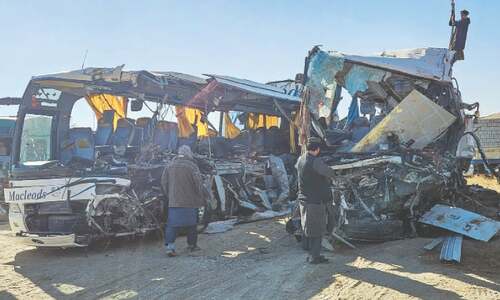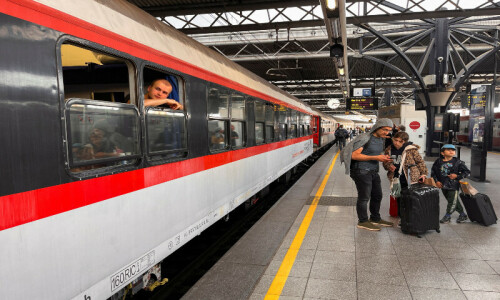
NO ONE, it can safely be assumed, wants to see the inside of a prison in real life. The clicking of locks, the slamming of doors and the endless cacophony of the prisoners left behind and locked up is the material of nightmares. Where actual prisons are concerned, few in Pakistan have any attention to spare.
This changed on Friday, July 13, when former prime minister Nawaz Sharif and his daughter Maryam Nawaz Sharif were arrested at Lahore Airport and shifted to Adiala jail, where they remain. On that day, Maryam Nawaz became one of over 3,500 women and children currently being held in the country’s prisons.
According to initial reports, Maryam Nawaz had declined to request an upgrade to Better Class, generally known as ‘B-Class’, facilities during her incarceration. The letter in which she makes her statement has been posted on her Facebook page. However, more recent reports state that she and her father are being held in a special wing of the prison with individual cells that are not close to the general population of the prison.
Though Maryam Nawaz Sharif can, on the basis of her material and political stature, exercise some degree of choice regarding the conditions of her incarceration, the situation that confronts most imprisoned Pakistani women is markedly different. Unsurprisingly, the vast majority of them are from poor families. Many, studies show, also have addiction issues, mental disorders and have faced physical and sexual abuse prior to their imprisonment. Most are also quite young, unemployed and from the most marginalised sections of Pakistani society. This means that they are the most vulnerable in a society where being weak leaves the individual open to unending cruelty.
Adiala jail is home to over 6,000 inmates, hundreds of them women, who lack the privilege to request for even basic facilities.
Adiala jail, where Maryam Nawaz is now imprisoned, was built in 1986 and has in the decades since become, like all the other prisons in Pakistan, an overcrowded facility. According to the Punjab Prisons Department, the prison was planned to accommodate 1,900 inmates but is home to over 6,000 — and hundreds of them are women. Because they are permitted to accompany their mothers, imprisoned there are also hundreds of children, all growing up behind the walls of the prison.
While there are rehabilitative and educational facilities inside the facility, most prisoners, men or women, cannot access them. Medical attention is rare and usually permitted only in the most dire and exigent cases. The rest of the time, the prisoners are left to their own devices; drugs can be easily procured to feed the addictions of many prisoners, and mistreatment and abuse by guards is a common occurrence. Even the most basic hygiene is neglected; and clean water, adequate nutrition and sanitation are not provided. It is, in sum, a deplorable situation.
In Pakistan’s small moment of attention to prisons, perhaps some consideration can also be spared for these other women who are imprisoned. As has been noted by several organisations, like the United Nations in a 2012 study of women in Pakistani prisons, basic reforms can make a drastic improvement in the conditions of their detention. Educational services provided to these women can yield tremendous dividends; the fact that they are already present with little to do, means that the obstacles in getting them to educational facilities are eliminated. If basic educational services are available, significant gains in literacy can be produced that can spread out to the community when the women are released. Second, given the prevalence of mental health issues among them, the provision of basic mental healthcare can greatly improve their lives and make them better able to deal with life within and outside the prison.
Of course, none of this will ever happen. Unless they are among the elite and the landed, those sent to prison are largely forgotten, and services for them are considered an encumbrance on the government.
In this sense, other than the Bhuttos and the Sharifs and their ilk, every prisoner in a Pakistani jail is effectively sentenced to death. What happens to inmates beyond the walls of the prison, after the click of a lock, belongs to a domain where no morals or moral responsibility seems to apply. If male guards are raping female prisoners, if children are being molested, if women in dire need of mental health treatment are tied up or left in their own filth, then, well, so be it. One can shrug and nod and forget.
The special treatment given to privileged prisoners is not simply about separate cells, better bathrooms or food from home. In moral terms, when the privileged are imprisoned, they are simultaneously anointed, raised to the level of high moral beings who have suffered and are therefore deserving of veneration.
Having suffered in prison, in the heat and the horror of closed doors and filthy bathrooms, makes politicians more worthy, courageous and possessed of a mettle that cannot be easily broken. The politicians who emerge from prison, when they emerge from prison, are well aware of the moral currency they have accrued from having been inside; they mention it again and again and again, in every speech that follows. They do it because people believe it and support it.
Even if resources cannot be spared for the women in prisons, perhaps some of the awe that we allot to politicians who have suffered can be spared for them too. Most imprisoned women in Pakistan have been convicted of petty crimes or of alleged affairs or of selling small quantities of drugs. If these women, none of whom are guilty of major crimes and many of whom have never been tried at all, could hope to enter a society where their imprisonment is no longer a stigma, where it is a sign of having suffered and persevered, then maybe they would have a chance at life after the death of being locked up in a Pakistani prison.
The writer is an attorney teaching constitutional law and political philosophy.
Published in Dawn, July 18th, 2018










































